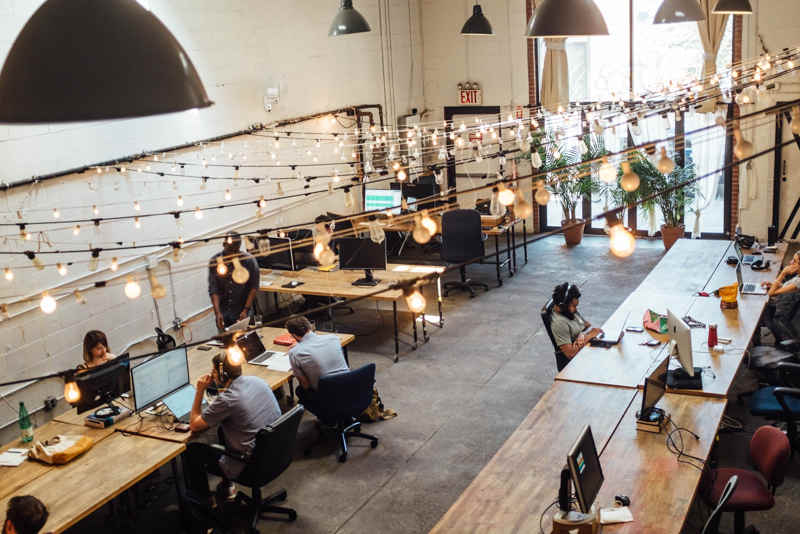
Even though there are mixed views and opinions regarding the long-term impact of the Covid-19 pandemic on the traditional work environment, everyone agrees that the way people work will change irrevocably.
No one knows for sure if people will go back to work in a post-pandemic future. However, what has happened in 2020 is an acceleration of some existing trends. The transition to remote work was already widespread before the pandemic.
Therefore, if the traditional office becomes totally obsolete, it won’t be due to the Covid-19 pandemic. The conventional office may gradually disappear due to the benefits of remote working that companies and workers discovered during the pandemic.
In other words, Covid-19 has presented a unique opportunity for businesses to evaluate their office space and re-think the work environment.
Is The Traditional Office Space Obsolete? 3 Post-Pandemic Workplace Scenarios
As mentioned previously, no one knows for sure how many companies will return to their offices once the pandemic will end (or if they will ever return to the office).
However, in the next few months and coming years, one of the three scenarios below will apply to the work environment:
1. Shifting to remote work and ditching the traditional office
Shifting to remote work is the most likely scenario in a post-pandemic work environment. Many businesses are now aware of the incredible benefits of remote work, such as paying a much lower overhead and employee costs, accessing the global talent pool, increasing productivity and efficiency, saving time on commuting, and living a healthier work-life balance.
Therefore, all companies that successfully implemented remote work in 2020 may never return to the brick-and-mortar office again.
Many companies may switch to a virtual office and use office space only when face-to-face meetings are an absolute must (virtual offices are a set of pay-as-you-use services). Though virtual offices are more popular among start-up owners, a high-quality virtual office (such as a B2B HQ virtual office) can be beneficial for all types of companies, no matter their size.
2. Keeping remote work policies partially
Some people expect companies to implement a partially remote work culture meaning that employees will access the office building only one or two days a week and work remotely during the rest of the week. Alternatively, some employees can be office-based, and some others home-based.
However, this may not be a viable solution as companies should continue paying overhead costs (e.g., rent, lease, maintenance, utilities, etc.) while many of their employees effectively work from home. For this reason, some people are considering partial remote work as a “neither fish nor fowl” work strategy.
Moreover, partially remote work does not allow companies to fully access the global talent pool and find the finest talents available in the world (because some of the employees have to live within commuting distance).
3. Returning to the traditional office
Returning to the traditional office and the pre-pandemic work environment is an improbable scenario. The Covid-19 pandemic has significantly changed the world and split office life into “pre” and “post” pandemic eras.
Some people believe that employees will slowly return to their offices (providing that distributed offices or huddle rooms may replace the open-plan workspace).
However, once the companies and employees understand the benefits of remote working, it is unlikely that this could happen.
Moreover, people are slowly becoming more focused on health and hygiene and seeing as unacceptable the idea of coming to work while sick, which means they will feel safer and more comfortable working from home even in a post-pandemic future.
Conclusion – Traditional office buildings are truly becoming obsolete. Even though no one knows how the world will look like after the pandemic ends, remote working is on the rise and the most likely scenario is that brick-and-mortar offices will soon die out.
Images source: pexels.com


